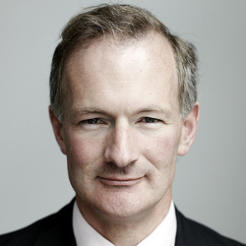The government has published the results of research it carried out to compare the operating costs of lottery distributors with those of other government funders and charitable foundations.
The study, available to download from the Department for Culture Media and Sport website, examines the amount of grants awarded and the costs of making the grants, for the Big Lottery Fund, the Heritage Lottery Fund, Arts Council England and Sport England in 2009/10.
It also looks at the ratio for nine trusts that combine grantmaking with other frontline activities, such as the Joseph Rowntree Charitable Trust and the Esmée Fairbairn Foundation, and for 14 foundations without extra frontline operations, including the Wolfson Foundation and the Badenoch Trust. The years examined here were 2008 or 2008/09.
Four different calculations
The percentage costs for the lottery and statutory funders are calculated four different ways: on their current income and without the Lottery Forum’s new definition of admin costs; on current income with Forum definition; with their revised share of National Lottery income that will apply from April 2012, without Forum definition, and on revised income shares with Forum definition.
The different criteria affects the operating cost ratios markedly. For instance, the Big Lottery Fund’s percentage costs compared to income varies from 6.2 per cent when calculated on current income with Forum definitions, to 11.8 per cent when calculated with revised shares and without Forum definition.
UK Sport was the most efficient of the statutory funders in all criteria groups, though it also had the lowest income. On current income, with or without Forum definitions, it spent just 4.4 per cent of its £56.5m turnover on grantmaking. Sport England, by contrast, spent 12.3 per cent on current income without Forum definition. The Arts Council was not far behind, on 10.5 per cent.
Charitable foundations with other activities
Among the charitable foundations, those with additional frontline activities generally had higher cost-to-income ratios than those without, though there were a few exceptions. Within the former group, the BBC Performing Arts Fund had the highest costs, at almost 27 per cent, followed by IBM United Kingdom Trust (20.1 per cent); Esmée Fairbairn Foundation (17.4 per cent) and Joseph Rowntree (15.9 per cent).
The Football Foundation was the most efficient of these funders, with costs of 7.7 per cent, despite having the highest income at £53.3m and the highest value of grants awarded: £51.1m. It also had a reasonably low cost-per-grant, at £959, whereas Joseph Rowntree spent £7,000 on each grant it made.
It should be noted, though, that the organisations that spent the most per grant – Joseph Rowntree and Esmée Fairbairn, also had the highest average grant, at £45,590 and £53,611 respectively.
Charitable foundations with no other frontline operations
Among those trusts that have no other frontline operations, six had operating costs of less than 2 per cent of income – the Badenoch Trust, the Shears Foundation, the Schroder Foundation, the Richard Carne Trust, the Fidelio Charitable Trust and the Wolfson Foundation. Badenoch was the most efficient, spending just 0.25 per cent of its income on grantmaking costs, though it awarded less than £1m in grants during the year.
At the other end of the scale, the John Ellerman Foundation allocated 24.3 per cent of its income to grantmaking costs. However, it distributed nearly two and a half times as much as it earned during the year: £4.3m worth of grants compared to income of £1.8m.
The Wolfson Foundation was by far the biggest funder among this group. It had income of £32.4m, gave out £40.1m in grants with an average grant value of £162,000, and had costs of £2,320 per grant, or 1.76 per cent of income.
Lottery minister John Penrose (pictured) told Parliament that this research informed his decision about the administrative cost caps he has set for the Big Lottery Fund.









